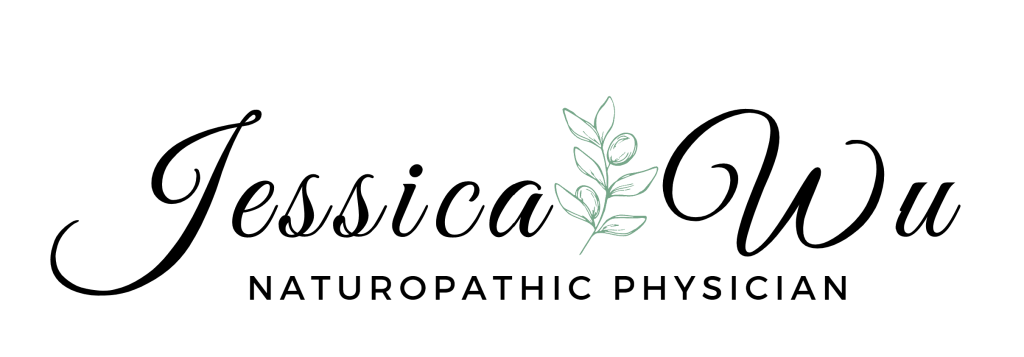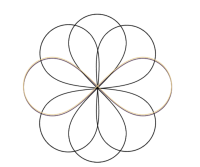
What kind of training do ND’s have?
Our education includes a four-year, in-residence, naturopathic medical program that integrates conventional and natural medicine. I was required to complete my bachelor’s degree prior to attending the Boucher Institute of Naturopathic Medicine. Similar to conventional medical school, a naturopathic student spends the first 2 years carrying a heavier course load, such as learning the foundations of biomedicine. We then branch into our unique path of learning nutrition, botanical medicine, homeopathy, counseling, physical medicine while reinforcing our abilities to clinically diagnose a condition. With both classroom and clinical training, we marry the art of traditional alternative remedies with modern medical technology, amounting to over 3000 hours of education.
Like medical doctors, the naturopathic doctor’s oath is to: first, do no harm. We are here to serve our patients in the hope to bring them out of a state of dis-ease. While using our clinical investigative skills, we integrate healing processes with both natural medicinal powers and pharmaceutical capacity as needed. I chose naturopathic medicine for a number of reasons, but what spoke most to me rests in our unparalleled naturopathic principles.
Do you feel heard?

In the year 2000, the median amount of time that a patient sees their general practitioner was approximately 15 minutes long. This gives 5 minutes of talk time for each doctor and patient, and then 5 minutes for any physical exams or documents. We all know that the amount of time patients have to wait to get into the office is generally not favorable. The current framework may leave a lot of people feeling unheard, misunderstood, and frankly hopeless. We absolutely value the work of our general practitioners, but sometimes we just need a little extra support.
Naturopathic doctors will typically take the hour for an initial visit with their patients. Their goal is to obtain a holistic snapshot of your health, taking into account as many aspects of your life that may be contributing to your current health issue. Follow-up appointments are then half an hour or more, allowing for treatment and continual investigation. This way we get to thoroughly piece together the information needed to treat the whole person.
You want to find the problem.
“Treat the cause” is a phrase often coined by alternative medical practitioners. While treating the cause is what every medical practitioner should aspire to do, often we’re pushed to a path that manages the symptoms. When we manage a symptom, like pain, we forget to ask why the pain was there in the first place. Naturopathic medicine aspires to treat the underlying cause of the symptoms, truly taking that person out of a state of dis-ease, not just the symptom.
While treating the cause is our main goal in the face of a health issue, does this mean that we don’t need to take action when there are no issues? Of course not! Naturopathic medicine also embraces preventative care. Let’s not only take responsibility for our health when things get bad but let’s stop whatever lifestyle habits that might be silently harming you in a way that eventually enumerates to disease. Preventative medicine is a lifestyle change, one that helps you optimize your way of life.
Looking for something more natural?

Have you ever noticed how going for a walk in the park helps you de-stress? Researchers actually performed a study on the effects on the heart while going for a walk in the city versus in a forest. There were significant benefits in the group that walked in a forest compared to the group that walked in the city. Moreover, the human body’s markers for stress were significantly lower, reducing anxiety, depression, and anger. To top that off, there is even evidence that this “forest-bathing” increases the cells in our body that fight cancer! Now, this is just a glimpse into the healing power of nature.
I believe that nature has its own intelligence and that our environment has its way of helping us in our healing journey. I am deeply passionate about using herbs and the outdoors in my practice. While there is scientific evidence of the benefits of medicinal herbs, I believe that plants have their own chemistry and intellect to support our bodies in areas that are lacking or in excess.
All the information one place.
“Education enhances the power of experience and the beauty of life” – Debasish Mridha, MD
The unfortunate truth is, a lot of our world’s health problems stem from not only a lack of education, but also deception. We are raised in a society where cereal was marketed as a healthy breakfast, and in a culture where we needed our starchy grains, potatoes, or rice in every meal. Without being educated, I was completely unaware of how I was setting myself up for the health challenges that my grandparents and parents suffer from. But of course, not everyone can get educated, and then re-educated as the information is constantly advancing and changing. That’s why it’s so great to have a naturopathic doctor to go to with questions and for up to date information. I am an advocate for having your doctor as your teacher, and there is so much of a difference that can be made with the simple art of education. I am passionate about teaching others to be healthy and being that resource for my patients.
I hope this post has helped you gain a better understanding of what NDs do and why they are so super!


Sources Cited:

Interesting information.